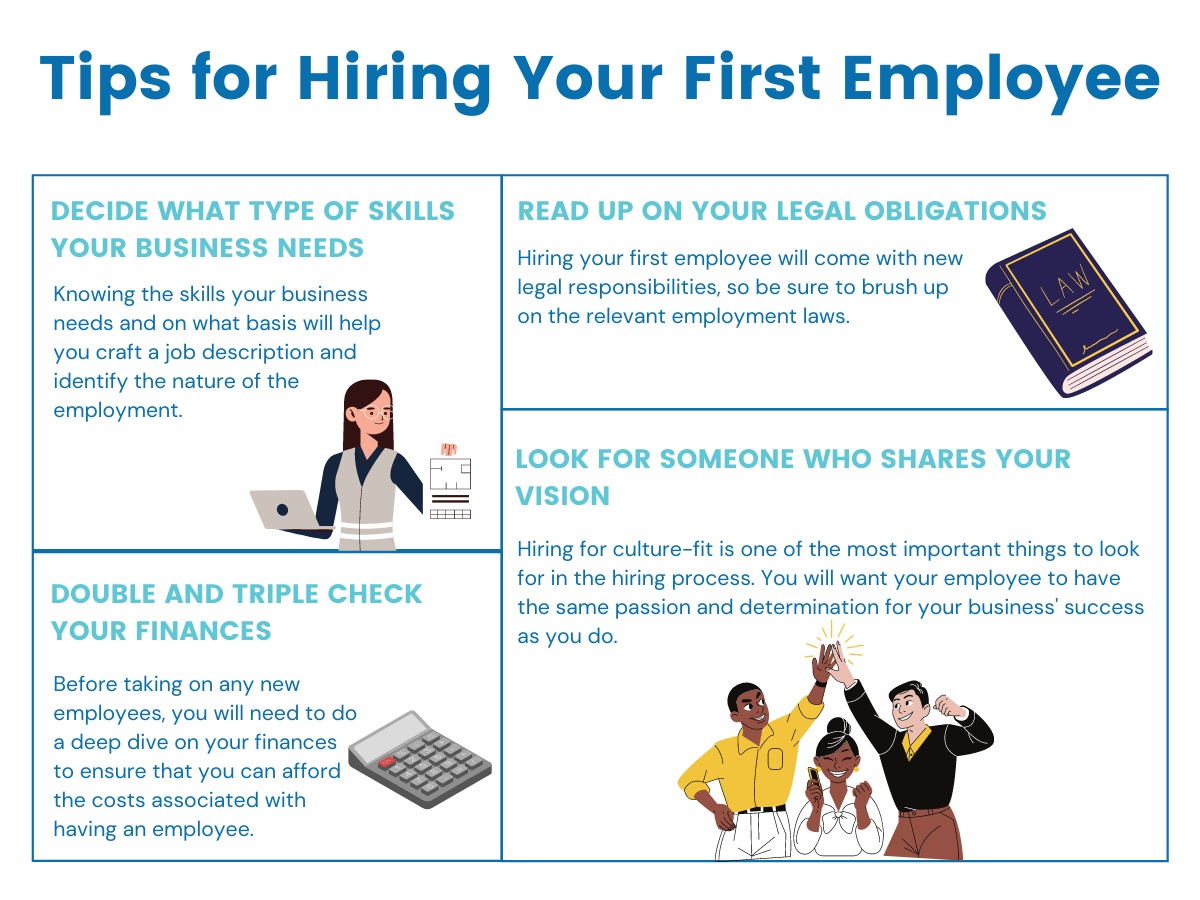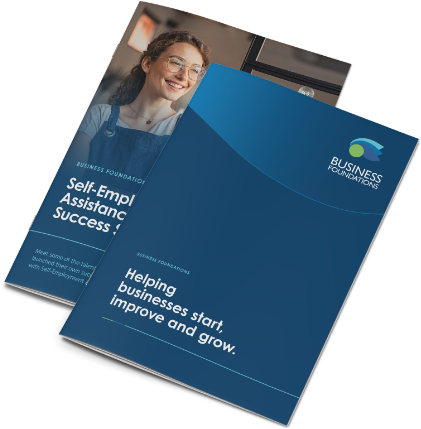Tips For Hiring Your First Employee
March 4, 2022
As an entrepreneur, you’ll reach several milestones throughout your career and lifetime. One of these milestones is hiring your first employee!
This is a big yet exciting step, as it means you are expanding your business. However, there is more to hiring an employee than just finding the right person for the job.
There are many other facts to consider, such as legal requirements, payroll, and tax. Here are some tips to ensure the hiring process is smooth for employer and employee alike.

Decide What Type Of Skills Your Business Needs
If you are needing help with one specific task, such a bookkeeping or an accountant then contracting them out is probably the best way to go.
If you are needing someone to help with the day to day of running your business and to look after your clients or customers, then an employee would be the best bet for you.
Examine the specific areas in your business where you need require assistance. Make a list of the responsibilities you would like someone to complete as well as the skills and experience they will need to be successful in the role. You can also use this list to create a job advertisement and job description.
Double and Triple Check Your Finances
To ensure that hiring your businesses first employee won’t crash your growing company, check your books, and then check them again! You’ll need to consider how much you can reasonably afford in salary and whether you’ll provide benefits.
Your potential employee’s salary is a major consideration, but you may also need to consider:
- Whether you need someone full time, part time or casually, you’ll need to consider the entitlement for each type of employment
- Superannuation, payroll tax and other legal requirements
- Training courses or materials
- Uniforms, technology (such as a mobile phone or laptop) or other equipment
- Extra insurance such as workers compensation

Read Up On Your Legal Obligations
Hiring a new employee will always come with a whole new set of legal responsibilities. So, it’s best to be prepared rather than learn lessons the hard way.
As an employer, you’ll need to know about the following employer obligations:
- Equal opportunity laws
- Tax and superannuation
- Employment records and leave entitlements
- Ensuring you have a safe workplace
- Legal interview questions and background checks
- Workers compensation insurance and injury management
Look For Someone Who Shares Your Vision
When you begin the process of hiring, look for someone who wants to be part of your business and who believes in your dream and idea. This first employee can make a world of difference in the future growth of your business.
Some universal qualities of your employee can include someone who:
- Is a team player with strong collaboration skills
- Has a feeling of intellectual curiosity
- Has the capacity to tackle numerous projects simultaneously
After all, hiring a new employee is like embarking on a new partnership. You want to make sure you are both on the same page.

Acknowledgement Of Country
Business Foundations acknowledges the traditional custodians throughout Western Australia and their continuing connection to the land, waters and community. We pay our respects to all members of the Aboriginal communities and their cultures; and to Elders both past and present.
Victoria
The Commons
80 Market Street,
South Melbourne VIC 3205
admin@businessfoundations.com.au
Western Australia
Wesley Central
2 Cantonment Street,
Fremantle WA 6160
admin@businessfoundations.com.au


Get In Touch
Have a question or to find out how we can help you, please get in touch.






